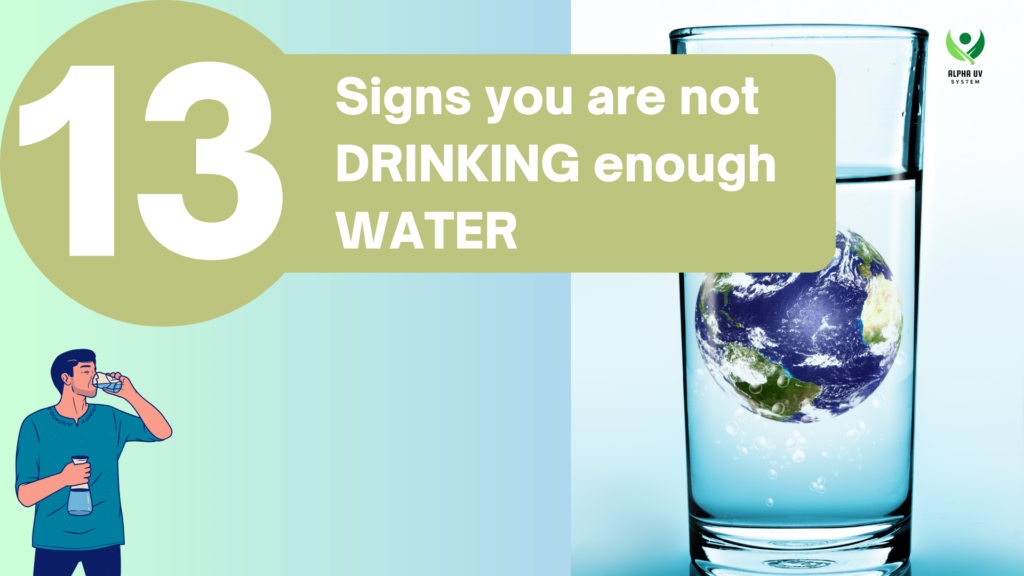Staying properly hydrated is essential for overall health and well-being. If you’re not drinking enough water, your body may send signals indicating dehydration. Here are signs that you may not be consuming sufficient water:
Dark Urine:
- Dark urine indicates dehydration, reflecting a concentrated waste product content. Adequate hydration results in pale yellow or straw-colored urine. Darker urine suggests the kidneys are conserving water by producing concentrated urine, emphasizing the need for increased fluid intake to maintain proper hydration levels.
Infrequent Urination:
- Infrequent urination is a potential sign of dehydration, as the body conserves water by reducing urine production. Adequate hydration promotes regular and sufficient trips to the restroom, flushing out toxins. Infrequent urination can lead to the accumulation of waste products in the body, emphasizing the importance of consistent fluid intake for overall health.
Dry Skin and Lips:
- Dehydration leads to dry and flaky skin as the body loses moisture. Insufficient water affects skin elasticity, causing tightness and discomfort. Dry and chapped lips are common signs, highlighting the need for increased water intake to maintain skin hydration and overall skin health.
Thirst:
- Thirst is the body’s natural response to dehydration. Frequent thirst indicates the body’s demand for more fluids. Ignoring this signal can lead to further dehydration, emphasizing the importance of listening to the body’s cues and staying adequately hydrated.
Fatigue and Lethargy:
- Dehydration reduces blood volume, limiting the supply of oxygen and nutrients to cells. This results in fatigue and lethargy, highlighting the critical role of proper hydration in maintaining energy levels and overall well-being.
Headaches:
- Inadequate water intake leads to dehydration, causing the brain to temporarily contract from the skull, triggering pain receptors and resulting in headaches. Proper hydration helps maintain the volume of cerebrospinal fluid, reducing the risk of headaches and promoting overall cognitive health.
Dizziness or Lightheadedness:
- Dehydration lowers blood pressure, leading to dizziness or lightheadedness, especially when standing up quickly. Adequate hydration is crucial for maintaining blood pressure levels and preventing symptoms of low blood volume.
Dry Mouth and Throat:
- Dehydration results in a dry mouth and throat as reduced saliva production contributes to dryness. Proper hydration is essential for maintaining oral health and preventing discomfort associated with dry mucous membranes.
Muscle Cramps:
- Electrolyte imbalances due to dehydration can lead to muscle cramps and spasms. Adequate hydration is vital for maintaining the balance of essential minerals like sodium and potassium, preventing muscle-related issues.
Difficulty Concentrating:
- Dehydration affects cognitive function, resulting in difficulty concentrating, memory issues, and mental fatigue. Proper hydration is essential for optimal brain function and maintaining cognitive performance.
Constipation:
- Water is crucial for proper digestion and the smooth movement of food through the digestive system. Inadequate water intake can contribute to constipation, emphasizing the role of hydration in supporting digestive health and regular bowel movements.
Decreased Sweating:
- Sweating is essential for cooling the body during physical activity. Dehydration can decrease sweating, impairing the body’s ability to regulate temperature. Adequate hydration is necessary for maintaining effective thermoregulation during exercise and hot conditions.
Decreased Tear Production:
- Dehydration reduces tear production, leading to dry and irritated eyes. Tears are crucial for eye health and comfort, highlighting the importance of proper hydration for maintaining ocular moisture and preventing eye discomfort.

